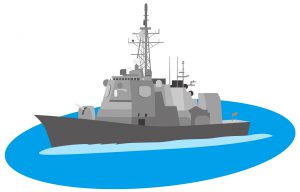In 2021, Kishi Nobuo became the first Japanese Defense Minister to address the European Parliament Subcommittee on Security and Defense, calling on EU member states to “visibly increase their military presence” in the Indo-Pacific. The same year, a senior Japanese Defense ministry official was prompted to remark, “We’ve never held two-plus-two talks so frequently before” in the wake of Germany’s inclusion for the first time. The UK’s post-Brexit ‘tilt’ towards the region was warmly embraced in a 2017 address by then-Japanese Foreign Minister Kono Taro: “We sincerely welcome the UK’s return to the area east of the Suez Canal”.
‘Europeanisation in the Indo-Pacific’ hence not only references European powers’ desire to protect the sizeable interests in the region, but also the active solicitation by Japan for their European partners to cooperate together. Consideration of this initiative to ‘shape’ the region not only explains increasingly closer ties in recent years, but also signal what may come.
Shaping the Way Forward
In 2013, Japan’s first-ever National Security Strategy outlined a more ‘proactive’ approach to regional peace and stability, with consistent references to its two leading European partners France and the UK. There are strong hints of shaping in the document’s objectives to “improve the security environment of the Asia-Pacific region, and prevent the emergence of and reduce direct threats to Japan.” Japan’s 2019 National Defense Program Guidelines renews a thirst to ‘create’ this capacity, cemented by a third mechanism of “international security cooperation” on top of Japan’s own defence capabilities and the US alliance. In effect, Japan advocated here for a conscious collaboration with like-minded European states to shape and mold the regional security environment. By 2021, Germany was inserted as a third key European partner highlighted in Japan’s Defence White Paper.
This shaping strategy can be related to the notion of ‘milieu’ goals. Defined by international relations scholar Arnold Wolfers as the “shape of the environment in which the nation operates”, these milieu goals include the shared concerns over freedom of maritime navigation and rules-based order which have brought Japan and Europe closer. Examples of documents by other powers that have advocated shaping include the 1997 US National Security Strategy, the UK’s 2021 Integrated Review, and the EU’s engagement with its Arab Mediterranean neighborhood. Such initiatives have heralded a “shaping” of the international environment and preservation of a rules-based order.
Rehabilitation as a Global Partner

Japan’s new proactive stance lies in stark contrast to labels such as “economic giant but a political dwarf”, a reference to checkbook diplomacy. The rise of Japan as a potential balancing factor by its neighbors was signaled in a 2021 survey by Singapore’s Institute for Southeast Asian Studies. Posed with the question “If ASEAN were to seek out ‘third parties’ to hedge against the uncertainties of the US-China strategic rivalry, who is your most preferred and trusted strategic partner for ASEAN?”, the EU was the top response followed by Japan at 39.3 percent.
Limited not only to growing visibility in security matters, Japan’s role was instrumental role in salvaging the Trans-Pacific Partnership after the US’s withdrawal, as well as the Regional Comprehensive Economic Partnership. Further, it led to the rare impact of a Japanese Prime Minister’s speech after former Prime Minister Abe’s “Confluence of the Two Seas” 2007 speech in India, which promoted the discourse of an ‘Indo-Pacific’ itself.
Japan has drawn positive responses from its European partners. In 2021, the German Foreign Minister proclaimed that to “actively shape the world of tomorrow… cooperation with Japan plays an important role”, while the UK Defence Secretary declared “The UK’s defence relationship with Japan is the closest it has been in the last century.”
Managing Expectations
Despite the indicators of Japan’s courtship of European security partners, the tyranny of distance means the future remains an open question. Sustainability and size of the European military presence in the Indo-Pacific remain uncertain factors, despite important commitments by the UK Royal Navy for instance to permanently assign two Offshore Patrol Vessels to the region. It can be said that crucially, no formal security guarantee to Japan close to the one offered by the US has been achieved by European military cooperation.
While the issue of how to cope with assertive actions by China has drawn Japan and European powers closer together, a unified approach to messaging and policy requires more work. The Chief of Staff of the French Navy described the purpose of joint exercises as to “demonstrate our presence to the region and send a message about Japan-France cooperation. This is a message aimed at China.” Japan meanwhile was more nuanced, declaring it was “committed to continuing to contribute to peace and stability of the local region as well as the world.”
One potential path materializes in the willingness to forego old bipolar structures in response to a rising China. For instance, UK Prime Minister Johnson maintained that UK Carrier Strike Group 21 deployments to the Indo-Pacific were meant to be “confident but not confrontational”, with the Foreign Secretary also dismissive of an “old Cold War mentality”. This is why the emerging international order is appropriately seen as one of fluidity and flux. In a time of massive power shifts, the joint shaping by Japan and Europe may present them with crucial roles as middle powers maintaining the rules-based order in the Indo-Pacific.
(Editor: Clement Ng)



